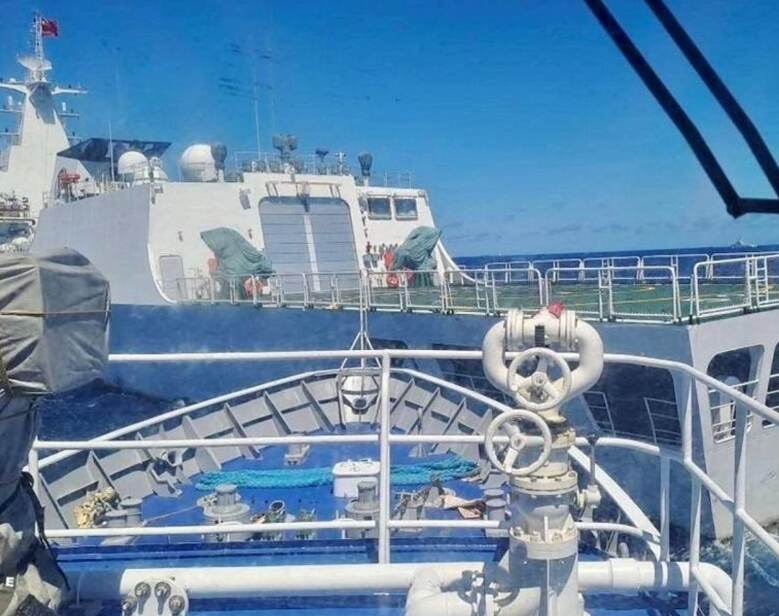Philippine Military Condemns Chinese Ship's Aggressive Act in South China Sea, Heightening Territorial Tensions
The Philippine military has condemned China's use of a water cannon to block a Filipino supply boat in the disputed South China Sea, escalating tensions in the region. Several countries, including the US and Japan, have expressed concern over China's actions.
In the latest development of the territorial conflicts in the South China Sea, the Philippine military has condemned the actions of a Chinese coast guard ship. The ship allegedly used an excessive and offensive water cannon to block a Filipino supply boat from delivering essential supplies to a Philippine-occupied shoal in the disputed region.
This tense confrontation at Second Thomas Shoal is just one example of the long-seething territorial conflicts involving China, the Philippines, Vietnam, Malaysia, Taiwan, and Brunei.
The South China Sea has long been regarded as an Asian flashpoint and a delicate fault line in the rivalry between the United States and China in the region. China claims ownership over virtually the entire strategic waterway, despite international rulings that have invalidated Beijing's vast territorial claims.
The Philippine military has condemned the Chinese ship's actions, stating that it violated international law, including the 1982 U.N. Convention on the Law of the Sea. Several countries, including the United States, Australia, and Japan, have expressed concern over the actions of the Chinese ship.
The United States has reiterated its support for the Philippines and warned that it is obligated to defend its longtime treaty ally in the event of an armed attack. Australia described the actions as dangerous and destabilizing, while Japan deemed them totally unacceptable.
China has long demanded that the Philippines withdraw its naval forces and remove a marooned Philippine navy ship, the BRP Sierra Madre, from the contested shoal. Chinese ships, including coast guard vessels and fishing boats suspected to be manned by militias, have surrounded the BRP Sierra Madre and frequently blocked and shadowed navy vessels delivering supplies to Filipino sailors.
The United States has often spoken out against China's aggressive actions in the South China Sea. While the U.S. does not lay any claims to the region, it has deployed warships and fighter jets to uphold freedom of navigation and overflight, which it considers to be in its national interest. China has warned the U.S. to stop meddling in what it calls a purely Asian dispute and has threatened unspecified repercussions.
The incident involving the Chinese coast guard's water cannon is just one example of the ongoing tensions in the South China Sea. The actions of China's coast guard and maritime militia directly threaten regional peace and stability, according to the U.S. State Department. The Philippines has called on China to act responsibly and prevent miscalculations and accidents that could endanger people's lives.
As the territorial conflicts in the South China Sea continue to escalate, it remains to be seen how the situation will unfold and what steps will be taken by the countries involved to resolve the disputes peacefully.




